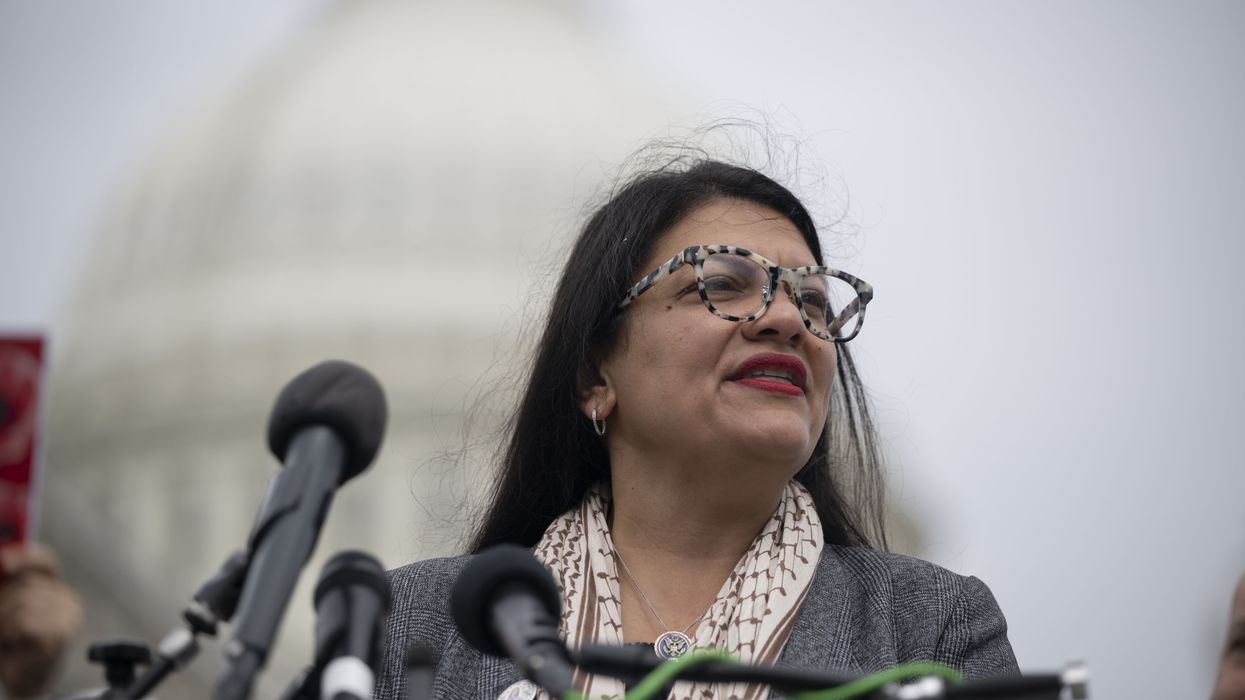March, 20 2012, 09:16am EDT

Afghanistan: End Invasive Searches of Women Visiting Prison
Degrading Practice Follows Transfer of Prisons to Interior Ministry
NEW YORK
The Afghan government should immediately end the practice of invasive vaginal searches of women visiting prisoners at Afghanistan's largest prison, Pul-i-Charkhi in Kabul, Human Rights Watch said today. The government should issue a decree prohibiting invasive searches in any Afghan prison unless absolutely necessary in specific instances.
The use of invasive cavity searches of women visitors began several weeks ago at Pul-i-Charkhi, a men's prison, multiple sources familiar with the prison told Human Rights Watch. While male visitors are simply patted down, all women are forced to undergo degrading, abusive, and unnecessary searches of their body cavities. These searches are conducted by female prison staff members who do not have specialized training and supervision, under unhygienic conditions.
"Routine cavity searches of women visitors are shocking, and an inexplicable invasion of the person," said Brad Adams, Asia director at Human Rights Watch. "The government should act immediately to prevent another day of women being subjected to this abuse."
International human rights law requires that any interference with the right to privacy be clearly prescribed by law, as well as necessary and proportionateto the legitimate purpose to be achieved under the circumstances. Even under these circumstances, invasive searches could be used only as last resort when a less-invasive means was not possible. When such searches are permissible, they can be done only by a person with appropriate medical training and in a way that respects dignity and privacy.
The searches being conducted at Pul-i-Charkhi do not comply with these requirements. The prison director has cited only a general goal of detecting contraband, which would not justify the routine use of such searches. The invasive searches at Pul-i-Charkhi demonstrate a violation of the right to privacy and a gross disregard for the bodily integrity of the visitors.
Moreover, the use of invasive searches only against women shows them to be discriminatory under international law. It is degrading treatment that violates a woman's dignity. To the extent they are conducted against women visitors without full and informed consent, the practice would amount to sexual assault.
"There are no legitimate security concerns that could justify forcing all women visitors to suffer such degradation and health risks," said Adams. "The government needs to stop prison wardens from using their power in such horrifically abusive ways."
The searches follow the controversial transfer in January 2012 of Afghan prisons from the Ministry of Justice to the Ministry of Interior, which holds supervisorial authority over the police. The transfer reversed an August 2003 decree by President Hamid Karzai that transferred prisons, which hold both pre-trial detainees and convicted prisoners, from the Interior Ministry to the Justice Ministry, an act then widely regarded as a crucial reform of the justice system. Placing all prisoners under Interior Ministry control increases the likelihood that the police, long implicated in torture and other ill-treatment, will have direct authority over criminal suspects during interrogation, increasing the risk of abuse.
The transfer of authority also seriously undermined efforts over the last 10 years to reform Afghan's prisons. Following the transfer, the then-head of Pul-i-Charkhi prison was removed and replaced with a new warden who had no experience in prison management.
The head of the civilian prison system ordered the new prison warden to halt the invasive searches of women visitors, but his order was ignored, Human Rights Watch said. Pul-i-Charkhi's new warden has insisted the searches will continue unless a donor provides him with an x-ray machine. He has not tried to use less-invasive measures, such as observing visits or searching men after they have visitors.
"Little more than two months after the transfer of prisons from the Justice Ministry to the Interior Ministry, the harmful effects are already plain to see," said Adams. "The Afghan government should act now to prevent further abuses by recognizing that the transfer was a mistake and reversing it."
Human Rights Watch is one of the world's leading independent organizations dedicated to defending and protecting human rights. By focusing international attention where human rights are violated, we give voice to the oppressed and hold oppressors accountable for their crimes. Our rigorous, objective investigations and strategic, targeted advocacy build intense pressure for action and raise the cost of human rights abuse. For 30 years, Human Rights Watch has worked tenaciously to lay the legal and moral groundwork for deep-rooted change and has fought to bring greater justice and security to people around the world.
LATEST NEWS
Trump Economic Approval Hits All-Time Low as White House Official Insists ‘Nothing Bad Is Happening’
"You can't call it a hoax," Sen. Lisa Murkowski (R-Alaska) said of Trump's current economic message.
Dec 11, 2025
A new poll shows US voters' approval of President Donald Trump's handling of the economy has hit an all-time low, even as the president and his officials insist the economy is the best in the world.
The latest Associated Press-NORC Center for Public Affairs Research poll released Thursday found that only 31% of voters approve of Trump's handling of the economy, the lowest figure in that survey throughout either of his two terms in office. Overall, 68% of voters said that the current state of the economy was "poor."
What's more, Trump's approval rating on the economy among Republican voters now stands at just 69%, a strikingly low figure for a president who has consistently commanded loyalty from the GOP base.
Despite the grim numbers, the president and his administration have continued to say that the US is now in the middle of an economic boom.
During a Thursday morning interview on CNBC, Commerce Secretary Howard Lutnick said that the US now has "the greatest $30 trillion economy in the world."
"We are doing great," Lutnick said. "Nothing bad is happening. Greatness is happening. We grew at 4% GDP! Come on!"
Lutnick: "Jay Powell is too afraid to lead the greatest $30t economy in the world. We should be leading with our front foot. Instead we are always leaning back as if something bad is happening. We are doing great. Nothing bad is happening. Greatness is happening. We're growing 4%… pic.twitter.com/uWqrlwpllE
— Aaron Rupar (@atrupar) December 11, 2025
Lutnick's message echoes the one Trump delivered earlier this week during a rally in Pennsylvania, where he said that voters' concerns about being able to afford basics such as groceries, electricity, and healthcare were a "hoax" concocted by Democrats.
"Prices are coming down very substantially," Trump falsely claimed during his speech. "But they have a new word. You know, they always have a hoax. The new word is affordability."
Trump on the US economy: “I said it the other day. And a lot of people misinterpreted it. They said ‘Oh he doesn’t realize prices are high.’ Prices are coming down very substantially. But they have a new word. You know, they always have a hoax. The new word is affordability.” pic.twitter.com/JkErFnkT1D
— Sahil Kapur (@sahilkapur) December 10, 2025
As NPR reported on Thursday, data shows that the prices of groceries and electricity have continued to rise throughout Trump's second term, directly contradicting his claims that prices are "coming down."
University of Michigan economist Betsey Stevenson told NPR that Trump is playing with fire by making false claims about prices when US consumers can see costs persistently going up.
"Trump's claims about inflation are false, and you can go to the grocery store and see it yourself," Stevenson said.
Even some members of Trump's own party are growing wary of him insisting that America is experiencing an unprecedented economic boom when voters feel otherwise.
Sen. Lisa Murkowski (R-Alaska) told The Hill that Trump's insistence on making happy talk about the economy would not fly with voters.
"You can’t call it a hoax and suggest that people are going to believe it," she said. "What you say matters."
An anonymous Republican senator also told The Hill that they were concerned about the optics of Trump building a massive luxury ballroom in the White House at a time when Americans say they are struggling financially.
"The cost of living just makes life very difficult on people," the senator stressed.
And Sen. Shelley Moore Capito (R-W.Va.) gently pushed back on Trump's messaging by telling CNN that "a lot of people are still having trouble making ends meet" in her state.
Keep ReadingShow Less
Trump Tariffs Have Cost Average US Family Nearly $1,200 So Far
"The president’s tax on American families is simply making things more expensive.”
Dec 11, 2025
As President Donald Trump persistently claims the economy is working for Americans, Democrats in the US House and Senate on Thursday released an analysis that puts a number to the recent polling that's found many Americans feel squeezed by higher prices: $1,200.
That's how much the average household in the US has paid in tariff costs over the past 10 months, according to the Joint Economic Committee—and costs are expected to continue climbing.
The Democrats, including Ranking Member Sen. Maggie Hassan (D-NH), Sen. Martin Heinrich (D-NM), and Rep. Sean Casten (D-Ill.), analyzed official US Treasury Department data on the amount of tariff revenue collected since the beginning of Trump's second term as he's imposed tariffs across the European Union and on dozens of other countries—some as high as 50%.
The White House has insisted the tariffs on imports will "pry open foreign markets" and force exporters overseas to pay more, resulting in lower prices for US consumers.
But the JEC combined the Treasury data with independent estimates of the percent of each tariff dollar that is paid by consumers, as companies pass along their higher import prices to them.
At first, US families were paying an average of less than $60 in tariff costs when Trump began the trade war in February and March.
But that amount shot up to more than $80 per family in April when he expanded the tariffs, and monthly costs have steadily increased since then.
In November, a total of $24.04 billion was paid by consumers in tariff costs—or $181.29 per family.
“While President Trump promised that he would lower costs, this report shows that his tariffs have done nothing but drive prices even higher for families."
From February-November, families have paid an average of $1,197.50 each, according to the JEC analysis.
“While President Trump promised that he would lower costs, this report shows that his tariffs have done nothing but drive prices even higher for families,” said Hassan.
If costs remain as high as they were over the next 12 months, families are projected to pay $2,100 per year as a result of Trump's tariffs.
The analysis comes a week after Republicans on a House Ways and Means subcommittee attempted to avoid the topic of tariffs—which have a 61% disapproval rating among the public, according to Pew Research—at a hearing on global competitiveness for workers and businesses.
"Rep. Jimmy Gomez [D-Calif.] read several quotes from [former Rep. Kevin] Brady [R-Texas] during his time in Congress stating that tariffs are taxes that impede economic growth. Brady, who chaired the Ways and Means Committee and drafted Trump’s first tax law in 2017 (and now works as a lobbyist), had no desire to discuss those quotes or the topic of tariffs," wrote Steve Warmhoff, federal policy director at the Institute on Taxation and Economic Policy. "Nor did Republicans address the point made by the Democrats’ witness, Kimberly Clausing, when she explained that Trump’s tariffs are the biggest tax increase on Americans (measured as a share of the economy) since 1982."
Clausing estimated that the tariffs will amount "to an annual tax increase of about $1,700 for an average household" if they stay at current levels, while Trump's decision to lower tariffs on goods such as meat, vegetables, fruits, and coffee last month amounted to just $35 in annual savings per household.
The JEC has also recently released analyses of annual household electricity costs under Trump, which were projected to go up by $100 for the average family despite the president's campaign pledge that "your energy bill within 12 months will be cut in half."
Last month the panel found that the average household is spending approximately $700 more per month on essentials like food, shelter, and energy since Trump took office.
“At a time when both parties should be working together to lower costs," said Hassan on Thursday, "the president’s tax on American families is simply making things more expensive.”
Keep ReadingShow Less
Tlaib Rips Lawmakers Who 'Drool at the Opportunity to Fund War' While Opposing Healthcare for All
"They’re gutting healthcare and food assistance to pay for bombs and weapons. It’s a sick vicious cycle," said Rep. Rashida Tlaib.
Dec 11, 2025
"Imagine if our government funded our communities like they fund war."
That was Rep. Rashida Tlaib's (D-Mich.) response to the House's bipartisan passage Wednesday of legislation that authorizes nearly $901 billion in military spending for the coming fiscal year, as tens of millions of Americans face soaring health insurance premiums and struggle to afford basic necessities amid the nation's worsening cost-of-living crisis.
Tlaib, who voted against the military policy bill, had harsh words for her colleagues who "drool at the opportunity to fund war and genocide, but when it comes to universal healthcare, affordable housing, and food assistance, they suddenly argue that we simply can’t afford it."
"Congress just authorized nearly a trillion dollars for death and destruction but cut a trillion dollars from Medicaid and the Affordable Care Act," said Tlaib, referring to the budget reconciliation package that Republicans and President Donald Trump enacted over the summer.
"They’re gutting healthcare and food assistance to pay for bombs and weapons. It’s a sick vicious cycle," Tlaib continued. "Another record-breaking military budget is impossible to justify when Americans are sleeping on the streets, unable to afford groceries to feed their children, and racking up massive amounts of medical debt just for getting sick."
House passage of the 2026 National Defense Authorization Act (NDAA) came as Republicans in both chambers of Congress pushed healthcare proposals that would not extend enhanced Affordable Care Act (ACA) tax credits that are set to expire at the end of the year, resulting in massive premium hikes for millions.
The nonpartisan Congressional Budget Office estimates that a Senate Democratic plan to extend the ACA subsidies for three years would cost around $85 billion—a fraction of the military spending that House lawmakers just authorized.
The NDAA, which is expected to clear the Senate next week, approves $8 billion more in military spending than the Trump White House asked for in its annual budget request.
According to the National Priorities Project, that $8 billion "would be more than enough" to restore federal nutrition assistance to the millions expected to lose it due to expanded work requirements included in the Trump-GOP budget law.
"Our priorities are disgustingly misplaced," Tlaib said Wednesday.
Keep ReadingShow Less
Most Popular


